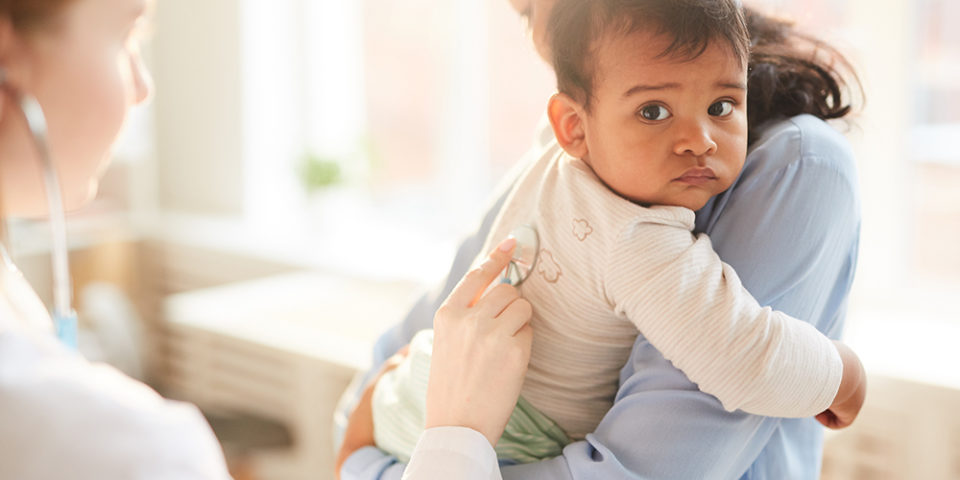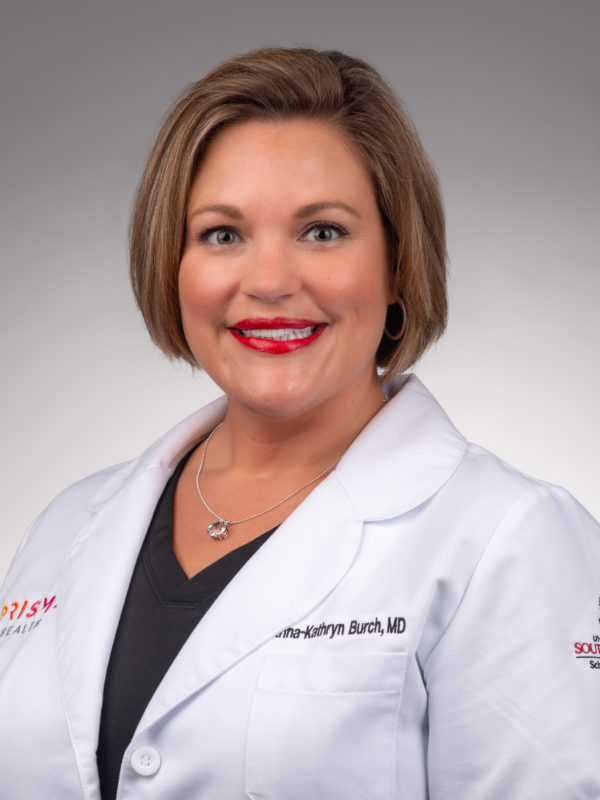RSV vs. influenza: What to know about respiratory viruses in children
Respiratory viruses, like RSV or influenza, can be nerve-wracking for parents. What ages are most at-risk for severe RSV infections? How can you tell if a child needs to go to the hospital? Pediatric infectious disease physician Anna Kathryn Burch, MD, explained what you need to know about RSV, influenza and other respiratory viruses.
What is RSV? How is RSV different from influenza and COVID-19?
RSV stands for respiratory syncytial virus and infects the lungs and breathing passages, primarily infecting infants, toddlers or very young children. Influenza infections target the nose, throat and lungs and tend to be most severe in the elderly and immunocompromised. COVID-19 is caused by a virus that targets the nose, throat, and sinuses, although COVID-19 can cause a respiratory tract infection, which can inflame everything from the sinuses down through the lungs.
The three viruses have a lot of similarities, including their primary symptoms:
- Runny nose
- Cough
- Muscle aches
- Headache
- Congestion
- Fever
- Less commonly, vomiting, diarrhea, or stomach aches
The loss of taste and smell, common with COVID-19, is not a symptom of RSV or influenza. Sore throats are also often a symptom of COVID-19 and not of RSV or the flu. While RSV tends to run its full course within two weeks and influenza generally lasts about a week, COVID-19 symptoms can hit some individuals much harder and last longer.
Your family’s pediatrician can test your child for RSV, COVID-19 and the flu to help narrow down exactly what is causing them to feel under the weather.
How serious is RSV?
“RSV is common, and most children recover on their own,” said Dr. Burch. “However, it shouldn’t be brushed off, as some cases can become severe and lead to hospitalization if bacterial pneumonia or bronchiolitis occur as a result.”
RSV is the most common cause of bronchiolitis, an inflammation of the small airways within the lung, known as the bronchial tubes. It happens most often in children one year old or younger who have contracted RSV. Bacterial pneumonia is also a possible complication of an RSV or flu infection and can lead to the need for hospitalization in very severe cases.
How do I know if my sick child needs to see a doctor?
“Most of the time, children do very well with at-home care for RSV,” said Dr. Burch. “COVID-19 and influenza cases may also only need plenty of rest, fluids and time to heal. Sometimes, though, we do find that children need to go into the hospital, especially if they are having trouble breathing.”
Dr. Burch suggested to watch for the following signs that your child may need to seek medical care:
- Labored breathing. Is your child sucking in air or breathing in deep gulps? Can you see the skin between their ribs when they inhale?
- Lethargy. Rest is essential for healing, but a lethargic child – one who cannot be easily roused or won’t wake to eat, drink or use the bathroom – may need prompt medical attention.
- Refusal to drink fluids. Dehydration is one of the most common reasons for sick children to become hospitalized. Make sure your child is taking in plenty of clear liquids (or breastmilk or formula, for infants) and if they stop using the bathroom or can’t seem to keep any liquids down, call your pediatrician.
- Rapid breathing. A child who is breathing very rapidly or shallowly may be struggling to get enough air.
- Prolonged fever. A fever that does not respond to over-the-counter anti-inflammatories or that persists for more than 72 hours warrants a call to your pediatrician’s office.
Should I take my sick child to the emergency room?
“Emergency rooms are very busy during the flu season in October through January, especially since COVID-19 came onto the scene,” said Dr. Burch. “I would recommend parents call their family’s pediatrician first to evaluate whether or not a hospital visit is needed.”
Some children may contract bacterial pneumonia as a result of RSV, in which case antibiotics prescribed by your pediatrician can help them to heal without hospitalization unless required. Your pediatrician can give you advice on whether your child’s illness needs hospital-level care.
How to protect young children from respiratory viruses
“The most important piece of advice I can give when it comes to protecting our kids from becoming infected with RSV, influenza or other respiratory viruses? Practice good hand hygiene,” said Dr. Burch. “Wash your hands regularly, make sure your children are washing their hands, and teach them to always use soap and take their time.”
Dr. Burch also recommends a few other basic steps that help to protect children from respiratory viruses:
- Do not cough into your hand! Try to cough into your sleeve or elbow and teach your child to do so as well. The same goes for sneezing.
- Try not to touch your fingers to your mouth or face after touching faucets, doorknobs, or any other surface.
- Wear a mask if you are ill, and teach your child to mask up whenever they are ill if they need to leave the house for any reason.
- Get your child – and yourself – vaccinated for the flu at least a few weeks before any planned holiday travel.
“I really can’t stress enough the importance of keeping your child home from school if they are sick,” said Dr. Burch. “Not only because that time spent resting and getting lots of sleep is key for their own recovery, but it’s also one of the best ways to help keep schools from becoming overwhelmed with these easily spread illnesses.”
Keep them home from those family holiday gatherings if they’re ill, too. RSV is most common in very young children, but it can strike anyone and may be especially severe not just in young infants but in the elderly, too. The same goes for the flu and COVID-19.
Find the care you need, close to home
Our primary care physicians provide well visits and everyday care when you need it with compassion and expertise.
Find Primary Care Near You

